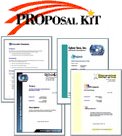This page is alive with extra information that can help you debug your pages. Can you see it? Recently I had to debug a complex ASP page. The page asked the user for some information which it used to look up a lot of interelated data in a database. Then it called a COM component which calculated an answer. The rules were quite complex to say the least! What I needed was a way to optionally display some information on the page so that the beta testers could help me pinpoint what had gone wrong during testing. The answer is simple - test for a certain circumstance, and optionally do some Response.Write's with the data. I do this on my development machine by testing if I'm running on a server called localhost, like this: | var sServer = "" + Request.ServerVariables ( "SERVER_NAME" ); bDebug = ( -1 != sServer.indexOf ( "localhost" ) ); |
The variable "bDebug" is then available for use wherever you need. For demonstration purposes this site uses a simpler strategy - you can simply add "?debug" to the URL's QueryString to see debug info! You can test it easily by refreshing this page as Debug.asp?debug.  | 




